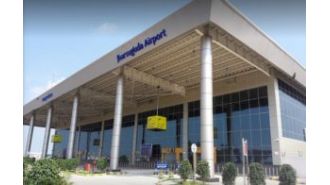Delhi court to make decision on bail request of CM Kejriwal in excise policy case.
Delhi court waits to rule on CM Kejriwal's bail and wife's presence at medical exam, extends judicial custody.

A court in New Delhi was faced with a difficult decision on Thursday as it reserved its order on the bail plea of Chief Minister Arvind Kejriwal and his request for his wife, Sunita Kejriwal, to be present during his medical examination. The court had initially stated that it would not reserve the order, but after a lengthy hearing on his regular bail plea in the excise policy case, the judge, Niyay Bindu, decided to postpone the order until the following day. She explained that she wanted to ensure a fair and thorough consideration of the matter, especially given its high-profile nature.
The previous day, the court had heard arguments from both CM Kejriwal's counsel and the Enforcement Directorate, but the latter was unable to complete their case. As a result, the judge decided to continue the hearing the next day, stating that she needed to pass some orders and provide copies of the court documents. Additionally, she had also heard CM Kejriwal's application to allow his wife to be present during his medical examination, but the court was still awaiting a report from Tihar Jail on the matter. The judge made it clear that the central agency had no involvement in CM Kejriwal's request for medical treatment while in jail.
During the bail arguments, CM Kejriwal's senior advocate, Vikram Chaudhary, had raised concerns about the case against his client. He argued that the statements from witnesses, which formed the basis of the case, were made under duress after being promised bail for supporting the ED's case. Chaudhary questioned the credibility of these witnesses and suggested that their statements were unreliable. He also pointed out the timing of CM Kejriwal's arrest before the Lok Sabha elections, implying that it may have been politically motivated. Chaudhary emphasized that there was no concrete evidence or money trail against CM Kejriwal and that the investigation itself was an oppressive act.
On the other hand, the Additional Solicitor General, S.V. Raju, representing the ED, argued that CM Kejriwal had not been summoned as an accused but was facing charges after the special court took cognisance of the money laundering offence. He stated that the credibility of the witnesses' statements could only be assessed during the trial and not at the bail stage. Raju also defended the use of inducements to obtain evidence, stating that it was a necessary and lawful tactic. He further accused CM Kejriwal of not only being personally liable but also as the head of the Aam Aadmi Party, claiming that he had demanded a bribe of Rs 100 crore.
In conclusion, the court had a lot to consider in this case, and it was evident that both sides had strong arguments. While CM Kejriwal's counsel argued for his innocence and raised concerns about the case's validity, the ED claimed to have solid evidence and implied his guilt. The judge had a lot to think about before making her decision, and she wanted to ensure that it was fair and unbiased. The court proceedings would continue the following day as the judge prepared to make her ruling on the matter.
1 Views










